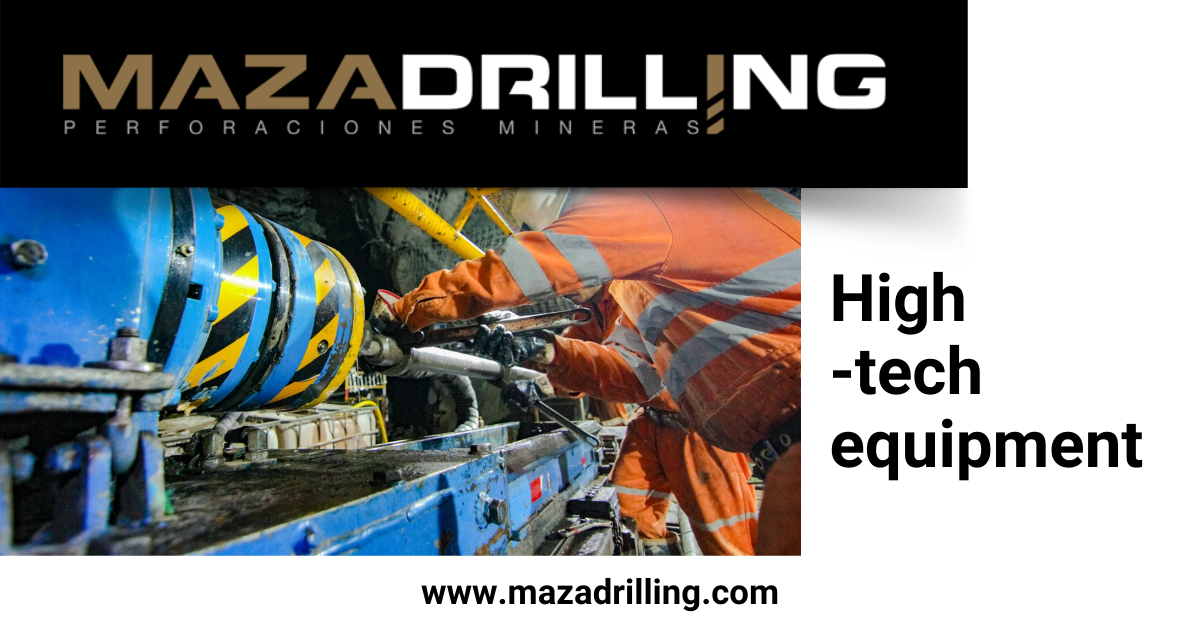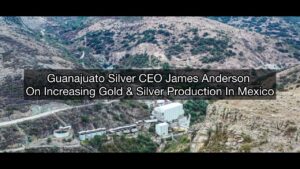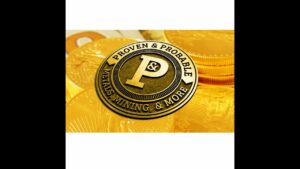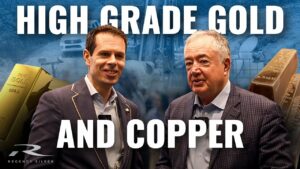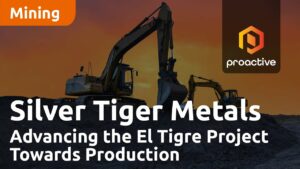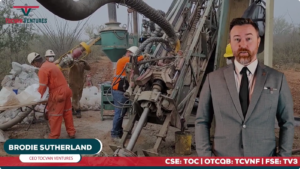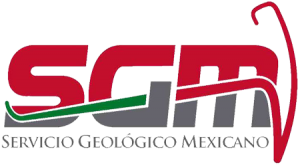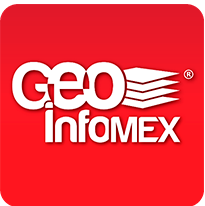TORONTO, ONTARIO–(Marketwired
– March 26, 2014) –
Minerals” or the “Company”) (TSX:ORA) announces financial and
operating results for 2013.
This release does not
constitute management’s discussion and analysis (“MD&A”) as
contemplated by applicable securities laws and should be read in conjunction
with the MD&A and the Company’s audited consolidated financial statements
for the three months and year ended December 31, 2013, which are
available on SEDAR at www.sedar.com and on
the Company’s website. Unless otherwise noted, references herein to
“$” are to thousands of
States
dollar. Tables are expressed in thousands of
States
Highlights:
- Operating
cash flow1 of $66,847 for the year ended December
31, 2013 compared to $38,317 for the year ended December
31, 2012; - Net
sales revenue for 2013 increased by 8% over 2012. Gold sales and copper
concentrate sales revenues increased by 7% and 11% over 2012,
respectively; - Gold
ounce (“oz”) production for 2013 was 19% higher than in the
prior year and Aranzazu’s copper production for the years ended December
31, 2013 and 2012 was 13,615,949 pounds and 10,980,100 pounds,
respectively, an increase of 24%; - Gross
margin of $(5,693) for 2013 as compared to a gross margin
of $(15,314) for 2012; - Loss for
the year ended December 31, 2013 (after a non-recurring
loss on the disposal of non-core exploration properties of $8,760
and impairment charges of $56,191) of $74,193
or $0.32 per share compared to a loss of $54,942
or $0.24 per share for the year ended December 31,
2012; - Subsequent
to year end, the Company obtained a $22,500 gold loan from Auramet
International LLC, the proceeds of which have been utilized to
settle the Company’s entire outstanding obligations pursuant to the
Company’s Amended Credit Facility.
1 Please see the cautionary note at
the end of this press release.
Jim Bannantine,
the Company’s President and Chief Executive Officer stated: “Aura
continued to achieve strong operating cash flows in 2013 through improved
production efficiencies at our existing operations. As a result of the improved
production efficiencies and cost reductions at our gold mines the Company
achieved record gold production and outperformed initial Company guidance
despite a year where there was a substantial drop in the gold price. Our copper
production from our Aranzazu project has also increased substantially year on
year.
Mine development at
Aranzazu has increased plant feed to realize economies of scale with higher
plant throughput and we have been optimizing our revenues through the strict
and controlled blending of ore feed arsenic. Initial engineering studies for
the expansion have continued, and financing pending, we anticipate increasing
our production to 4,500 tonnes per day, which is expected by 2016.
At the San Andres
Mine, 2013’s production has been improved by the addition of a new
secondary crusher with increased availability and utilization, increasing
throughput and a focus on de-bottlenecking the plant. In addition, the grades
have been better than originally forecasted and we expect to see continued
growth in production this year.
Sao Francisco had an
excellent 2013, surpassing all of our expectations, and we expect to see
another full year of strong production with continued decreases in cash costs,
based upon a revised geological block model which has identified additional
mineralization to our block model. Although Sao Vicente ceased its mining
operations in November, we achieved better than expected feed material which
enabled us to maximize the plant capacity throughout the year.
The Serrote development
Project remains a valuable option for Aura to significantly increase the size
of the Company, and we’re investigating a number of options to realize that
value, including potentially re-sequencing the project schedule, reducing
capital expenditure, finding an equity partner and securing project-based
financing.
In March 2014,
we were able to agree on a $22.5 million gold loan facility
which we used to refinance our current balance sheet. This has enabled us to
continue to focus our efforts on a larger corporate financing package to enable
us to proceed with the full Aranzazu expansion, for which we remain optimistic,
based on discussions with potential lenders.
A focus on all costs at
site and at corporate and strict cash conservation methods has resulted in our
being able to operate profitably and grow, realizing the full potential of our
assets which have capacity for significant organic growth.”
Production and Cash
Costs
Gold oz production in the
fourth quarter of 2013 was 3% lower as compared to the fourth quarter of 2012.
For the year ended December 31, 2013, gold oz production was 19%
higher than in the prior year. Gold production and cash costs1 for
the three and twelve months ended December 31, 2013 and 2012
were as follows:
For
| For
| |||||
December
| December
| |||||
Oz
| Cash
| Oz
| Cash
| |||
San Andres
| 15,017
| $
| 1,244
| 63,811
| $
| 1,131
|
Sao Francisco
| 25,259
| 1,048
| 105,541
| 1,144
| ||
Sao Vicente
| 8,230
| 906
| 37,604
| 1,288
| ||
Total / Average
| 48,506
| $
| 1,085
| 206,956
| $
| 1,166
|
For
| For
| |||||
December
| December
| |||||
Oz
| Cash
| Oz
| Cash
| |||
San Andres
| 11,936
| $
| 1,242
| 59,751
| $
| 1,015
|
Sao Francisco
| 29,368
| 1,218
| 80,357
| 1,528
| ||
Sao Vicente
| 8,952
| 1,092
| 33,155
| 1,537
| ||
Total / Average
| 50,256
| $
| 1,201
| 173,263
| $
| 1,353
|
Copper production at
Aranzazu for the fourth quarter of 2013 and 2012 was 3,642,482 pounds and
2,223,100 pounds, respectively, an increase of 64%. On-site average cash cost1
per pound of payable copper produced, net of gold and silver credits was $3.63
for the fourth quarter of 2013 compared to $5.42 for the fourth
quarter of 2012, inclusive of net realizable value write downs of $0.76
and $1.25 for the fourth quarters of 2013 and 2012,
respectively. Copper production at Aranzazu for the years ended December
31, 2013 and 2012 was13,615,949 pounds and 10,980,100 pounds,
respectively, an increase of 24%. On-site average cash cost1 per
pound of payable copper produced net of gold and silver credits was $4.15
for the full year of 2013 compared to $3.63 for the full year of
2012 inclusive of net realizable value write-downs of $0.74 and $0.56
for the years 2013 and 2012, respectively.
Gold production at
Andres
comparable period primarily due to higher grades and recoveries. Average cash
cost per oz of gold produced1 at
Andres
compared with the fourth quarter of 2012. The 15,000 metre drilling program for
2013 continued with priority on near term production targets with higher grades
and a similar program is expected to continue into 2014.
Gold production at Sao
Francisco in the fourth quarter of 2013 was 14% lower than the fourth quarter
of 2012 due primarily to lower plant feed. Average cash cost per oz of gold
produced1 at Sao Francisco in the fourth quarter of 2013 was 14%
lower than the fourth quarter of 2012. The lower average cash cost per oz of
gold produced1 in the fourth quarter of 2013 was primarily due to
the higher grades encountered and increased recoveries from the leach while
mining costs were lower due to less material moved and also benefitted from the
weakening of the Brazilian real.
Mining at Sao Francisco is
expected to continue to the end of 2014 as exploration drilling in 2013 and a
revised geological block model has identified additional mineralized material
in several areas of the pit. An updated reconciliation indicates that certain
waste and low grade zones could convert to additional plant feed. Processing
may be extended into 2015 as a result of the positive reconciliation and the
additional mineralization identified.
During the fourth quarter
of 2013, 8% less gold ounces were produced as Sao Vicente as compared to the
fourth quarter of 2012. The average cost per oz of gold produced1 in
the fourth quarter of 2013 was 17% lower than the fourth quarter of 2012 due to
the majority of ore being sourced from the stockpile, as well as improved
grades and recoveries from the heaps. There was also sufficient feed material
in the stockpiles to keep the plant operating at over 100,000 tonnes per month
during Q4 2013.
Cyanide will continue to be
added to the Sao Vicente heap leach pads in early 2014 and we will then
irrigate the heap throughout 2014, initially to recover any residual gold
ounces, but thereafter to neutralize the cyanide and pH of the heap.
At Aranzazu, copper
concentrate production increased by 59% in the fourth quarter of 2013 as
compared to the fourth quarter of 2012, due to the effect of a 37% increase in
copper grade as a result of a planned shift to higher grade underground mining,
offset by a 4% decrease in the copper recoveries. Aranzazu’s mine development
focused on near-term development in Q4 2013. This is expected to continue
throughout 2014.
Average cash cost per
payable pound of copper produced1 at Aranzazu for the three months
ended December 31, 2013 decreased by 28% as compared to the
three months ended December 31, 2012. These average cash costs
are inclusive of net realizable value write-downs of $0.76 and $1.25
for the fourth quarters of 2013 and 2012 respectively
The average arsenic level
in the copper concentrate was 0.99% during the three months ended December
31, 2013. Aranzazu implemented a successful program of blending during
2013 to ensure that value could be maximized from the sales of concentrates.
This resulted in significant improvements in the levels of arsenic encountered
in the concentrate production.
1 Please see the cautionary note at
the end of this press release.
Serrote
The Serrote project early
development phase is continuing and the Company is continuing to pursue options
to maximize the value of Serrote including, but not limited to, a disposal of a
majority interest in the project equity and the Company is also considering a
revised development and operating plan that would require lower capital
expenditures and an earlier execution schedule.
Brazilian Mines –
Value Maximization
The Company continues to
investigate multiple options to maximize the disposal and closure value of the
assets of the Brazilian Mines, including selling the plant and equipment and
utilizing key members of their operating teams at our other locations.
Revenues and Cost
of Goods Sold
Revenues for the year ended
December 31, 2013 increased 8% compared to the year ended December
31, 2012. The increase in revenues resulted from a 7% increase in gold
sales and a 11% increase in copper concentrate sales.
The increase in gold sales
is attributable to a 27% increase in gold sales volumes partially offset by a
15% decrease in the realized average gold price per ounce.
The increase in copper
concentrate net sales is primarily attributable to a 24% increase in DMT sold
offset by a 10% decrease in average price realized. Total revenues for the year
ended December 31, 2013 at Aranzazu related to the shipment of
24,995 DMT of copper concentrate compared to 20,321 DMT of copper concentrate
for the year ended December 31, 2012. Total concentrate shipment
revenues for the year ended December 31, 2013 and 2012 were $1,642
per DMT and $1,819 per DMT, respectively. The lower concentrate
shipment revenue per DMT is due to both lower commodity prices and the
comparative effect of the arsenic-related treatment and refining charges and
penalties (such charges were implemented mid-way through Q2 2012). The
negotiated improvements to off-take contracts only took effect in the later
part of 2013.
For the year ended December
31, 2013 and 2012, total cost of goods sold from
Andres
compared to $64,188 or $1,218 per oz,
respectively. For the years ended December 31, 2013 and 2012,
cash operating costs were $1,124 per oz and $1,019
per oz, respectively, while non-cash depletion and amortization charges were $131
per oz and $199 per oz, respectively. The cash operating costs
for the year ended December 31, 2013 included a write-down of $880
or $13 per oz to bring production inventory to its net
realizable value (2012: $nil or $nil per oz).
Total cost of goods sold
from the Brazilian Mines for the year ended December 31, 2013
and 2012 was $192,592 or $1,342 per oz and $209,425
or $1,866 per oz, respectively. For the years ended December
31, 2013 and 2012, cash operating costs were $1,090 per
oz and $1,512 per oz, respectively, while non-cash depletion and
amortization charges were $252 per oz and $354
per oz, respectively. The cash operating costs for the year ended December
31, 2013 included a write-down of $23,401 or $163
per oz to bring production inventory to its net realizable value (2012: $33,883
or $302 per oz).
Total cost of goods sold
from Aranzazu for the years ended December 31, 2013 and 2012 was
$61,893 or $2,476 per DMT and $49,113
or $2,417 per DMT, respectively. For the years ended December
31, 2013 and 2012, cash operating costs were $2,082 per
DMT and $2,069 per DMT, respectively, while non-cash depletion
and amortization charges were $394 per DMT and $348
per DMT, respectively. The cash operating costs for the year ended December
31, 2013 included a write-down of $10,074 or $403
per DMT to bring production inventory to its net realizable value (2012: $6,173
or $304 per DMT).
Additional
Highlights
For the year ended December
31, 2013 and 2012, general and administrative costs were $16,078
and $18,593, respectively. Salaries, wages and benefits and
travel expenses decreased due to reorganizations at the Company’s corporate
offices. Share-based payment expense decreased 61% as a result of a lower value
assigned to stock options granted during the period and prior period
forfeitures. Professional and consulting fees decreased due to the Company
limiting spending on special projects during the period. Other expenses for
2013 include $2,100 relating to a non-recurring provision for
employee travel liabilities and also separate taxation penalties assessed on
the late payment of instalments relating to prior periods at the Company’s
operations.
Exploration costs for the
year ended December 31, 2013 and 2012 were $1,987
and $7,696 respectively. This decrease in exploration costs
reflect the completion of Serrote’s feasibility study and Aranzazu’s PEA in
2012. The 2013 exploration program at
Andres
during 2014.
For the year ended December
31, 2013, the Company recorded an impairment charge of $16,021
related to the long-lived assets of the Sao Francisco Mine
and $40,172 related to the long-lived assets of the San
Andres Mine and a loss on disposal relating to the non-core
Brazilian exploration properties of $8,760.
Finance costs for the year
ended December 31, 2013 and 2012 were $5,817 and $4,917,
respectively. The decrease in the overall accretion charge relates to changes
to the estimate of the net smelter return royalty payable and changes in
provisions for the mine closure cost and restoration. The service cost on the
post-employment benefit was re-calculated at December 31, 2013
for the entire 2013 year, resulting in an adjustment to the expense for the
2013 year. An increase in the interest expense on debt and other interest and
finance costs reflects the additional forbearance period transaction costs,
interest rates and payment-in-kind interest charges.
Other gains for the year
ended December 31, 2013 were $13,402, as compared
to other losses for the year ended December 31, 2012 of $5,099.
Income tax recovery for the year ended December 31, 2013 was $7,677
compared to an income tax expense of $3,385 for the year ended December
31, 2012 was $3,385.
For the year ended December
31, 2013, the Company recorded a loss of $74,193 which
compares to a loss of $54,942 for the year ended December
31, 2012.
Outlook and
Strategy
Minerals’
position will be closely related to the prevailing prices of gold and copper.
Key factors influencing the price of gold and copper include the supply of and
demand for these commodities, the relative strength of currencies (particularly
the U.S. dollar) and macroeconomic factors such as current and future
expectations for inflation and interest rates. Management believes that the
short-to-medium term economic environment is likely to remain relatively
supportive for both commodity prices but with continued volatility for both
commodities. In order to decrease risks associated with commodity price
volatility the Company will continue to evaluate entering into additional
hedging programs.
Other key factors
influencing profitability and operating cash flows are production levels
(impacted by grades, ore quantities, labour, plant and equipment
availabilities, and process recoveries) and production and processing costs
(impacted by production levels, prices and usage of key consumables, labour,
inflation, and exchange rates).
Minerals’
2014 year is as follows:
Gold Mines
| Cash
| 2014
|
San Andres
| $
| 75,000
|
Sao Francisco
| $
| 75,000
|
Sao Vicente
| $
| 5,500
|
Total
| $
| 155,500
|
Aranzazu’s production for
2014 is expected to be between 18,000,000 and 19,500,000 pounds of copper at a
range of $2.60 to $3.15 average cash cost per payable pound1
of copper.
In the first quarter of
2014 and to the date of this press release, the indicators have been that the
pro-rata guidance will be achieved at each operating mine.
For 2014, total capital
spending is expected to be $36,000. Of this amount, $20,000
relates to the development and expansion of Aranzazu, while $12,000
relates to
plant upgrades, Phase V of the heap leach expansion and community expenditures.
The remaining portion will be spent on various miscellaneous projects in the
group, including the Serrote development project. The capital expenditure
programs for the expansion of Aranzazu and the development of Serrote are
dependent upon successful completion of financing.
1 Please see the cautionary note at
the end of this press release.
Conference Call
Minerals’
analysts and investors on Thursday, March 27, 2014 at 9:00
a.m. (Eastern Time) to review the 2013 results. Participants may access
the call by dialing 416-340-8530 or the toll-free access at 1-888-340-9642.
Participants are encouraged to call in 10 minutes prior to the scheduled start
time to avoid delays.
The call is being webcast
and can be accessed at
Minerals’
Those who wish to listen to a recording of the conference call at a later time
may do so by dialing 905-694-9451 or 1-800-408-3053 (Passcode 5178729#). The
conference call replay will be available from 2:00 p.m. on March
27, 2014, until 11:59 p.m. (EST) on April 10, 2014.
Non-GAAP Measures
This news release includes
certain non-GAAP performance measures, in particular, the average cash cost of
gold per oz, average cash cost per payable pound of copper and operating cash
flow which are non-GAAP performance measures. These non-GAAP measures do not
have any standardized meaning within IFRS and therefore may not be comparable
to similar measures presented by other companies. The Company believes that
these measures provide investors with additional information which is useful in
evaluating the Company’s performance and should not be considered in isolation
or as a substitute for measures of performance prepared in accordance with
IFRS.
Average cash costs per oz
of gold or per payable pound of copper are presented as they represent an
industry standard method of comparing certain costs on a per unit basis. Total
cash costs of gold produced include on-site mining, processing and
administration costs, off-site refining and royalty charges, reduced by silver
by-product credits, but exclude amortization, reclamation, and exploration
costs, as well as capital expenditures. Total cash costs of gold produced are
divided by oz produced to arrive at per oz cash costs. Similarly, total cash
costs of copper produced include the above costs, and are net of gold and
silver by-products, but include offsite treatment and refining charges. Total
cash costs of copper produced are divided by payable pounds of copper produced
to arrive at per payable pound cash costs.
Operating cash flow is the
term the Company uses to describe the cash that is generated from operations
excluding depletion and amortization, stock based compensation, impairment
charges and the effect of changes in working capital.
About
Minerals Inc.
Minerals
focused on the development and operation of gold and base metal projects in the
producing assets include the copper-gold-silver Aranzazu mine in
the
gold mine in
and the Sao Francisco and Sao Vicente gold mines in
The Company’s core development asset is the copper-gold-iron Serrote project in
achievements on the Serrote project include: completion of basic engineering;
significant progress on land acquisitions and community resettlement, with
approximately 70% of the project area now acquired; and engineering-only award
of long lead equipment. Detailed negotiations for debt and equity financing of
the project are continuing.
National Instrument
43-101 Compliance
Unless otherwise indicated,
the technical information in this press release (“Technical
Information”) based on information contained in the technical reports and
news releases (collectively the “Disclosure Documents”) available
under the Company’s profile on SEDAR at www.sedar.com.
Each Disclosure Document was prepared by or under the supervision of a
qualified person (a “Qualified Person”) as defined in National
Instrument 43-101 – Standards
of Disclosure for Mineral Projects (“NI 43-101”). Readers
are encouraged to review the full text of the Disclosure Documents which
qualifies the Technical Information. Readers are advised that mineral resources
that are not mineral reserves do not have demonstrated economic viability. The
Disclosure Documents are each intended to be read as a whole, and sections
should not be read or relied upon out of context. The Technical Information is
subject to the assumptions and qualifications contained in the Disclosure
Documents. The disclosure of Technical Information in this Press Release has
been reviewed and approved by Bruce Butcher, P. Eng., Vice
President, Technical Services, a Qualified Person pursuant to National
Instrument 43-101.
Cautionary Note
This news release contains
certain “forward-looking information” and “forward-looking
statements”, as defined in applicable securities laws (collectively,
“forward-looking statements”). All statements other than statements of
historical fact are forward-looking statements. Forward-looking statements
relate to future events or future performance and reflect the Company’s current
estimates, predictions, expectations or beliefs regarding future events and
include, without limitation, statements with respect to: the amount of mineral
reserves and mineral resources; the amount of future production over any
period; the amount of waste tonnes mined; the amount of mining and haulage
costs; cash costs; operating costs; strip ratios and mining rates; expected grades
and ounces of metals and minerals; expected processing recoveries; expected
time frames; prices of metals and minerals; mine life; and gold hedge programs.
Often, but not always, forward-looking statements may be identified by the use
of words such as “expects”, “anticipates”,
“plans”, “projects”, “estimates”,
“assumes”, “intends”, “strategy”,
“goals”, “objectives” or variations thereof or stating that
certain actions, events or results “may”, “could”,
“would”, “might” or “will” be taken, occur or be
achieved, or the negative of any of these terms and similar expressions.
Forward-looking statements
are necessarily based upon a number of estimates and assumptions that, while
considered reasonable by the Company, are inherently subject to significant
business, economic and competitive uncertainties and contingencies.
Forward-looking statements in this news release and related MD&A are based
upon, without limitation, the following estimates and assumptions: the presence
of and continuity of metals at the Company’s Mines at modeled grades; the
capacities of various machinery and equipment; the availability of personnel,
machinery and equipment at estimated prices; exchange rates; metals and
minerals sales prices; appropriate discount rates; tax rates and royalty rates
applicable to the mining operations; cash costs; anticipated mining losses and
dilution; metals recovery rates, reasonable contingency requirements; and
receipt of regulatory approvals on acceptable terms.
Known and unknown risks,
uncertainties and other factors, many of which are beyond the Company’s ability
to predict or control could cause actual results to differ materially from
those contained in the forward-looking statements. Specific reference is made
to the most recent Annual Information Form on file with certain Canadian
provincial securities regulatory authorities for a discussion of some of the
factors underlying forward-looking statements, which include, without
limitation, gold and copper or certain other commodity price volatility, changes
in debt and equity markets, the uncertainties involved in interpreting
geological data, increases in costs, environmental compliance and changes in
environmental legislation and regulation, interest rate and exchange rate
fluctuations, general economic conditions and other risks involved in the
mineral exploration and development industry. Readers are cautioned that the
foregoing list of factors is not exhaustive of the factors that may affect the
forward-looking statements.
All forward-looking statements
herein are qualified by this cautionary statement. Accordingly, readers should
not place undue reliance on forward-looking statements. The Company undertakes
no obligation to update publicly or otherwise revise any forward-looking
statements whether as a result of new information or future events or
otherwise, except as may be required by law. If the Company does update one or
more forward-looking statements, no inference should be drawn that it will make
additional updates with respect to those or other forward-looking statements.
Contact Information:
(416) 649-1033
(416) 649-1044 (FAX)
[email protected]
www.auraminerals.com
